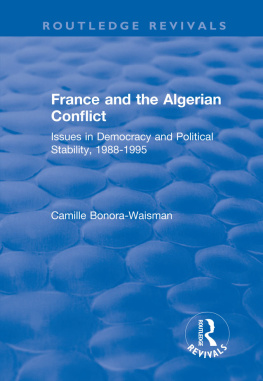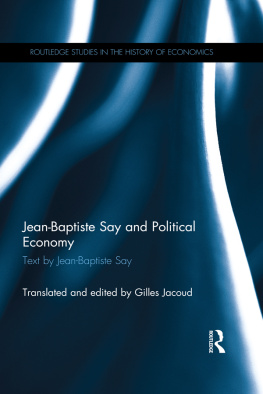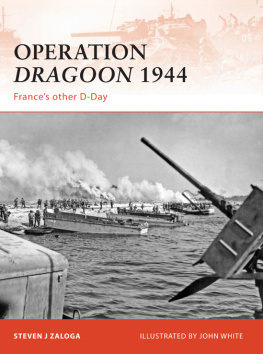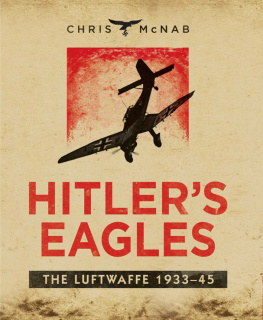Enigma Books
Also published by Enigma Books
Hitlers Table Talk 19411944
Hugh Trevor-Roper, Ed.
In Stalins Secret Service
W. G. Krivitsky
Hitler and Mussolini: The Secret Meetings
Santi Corvaja
The Jews in Fascist Italy: A History
Renzo De Felice
The Man Behind the Rosenbergs
Alexander Feklisov and Sergei Kostin
Roosevelt and Hopkins: An Intimate History
Robert E. Sherwood
Diary 19371943
Galeazzo Ciano
The Battle of the Casbah: Terrorism and Counter-Terrorism in Algeria 19551957
General Paul Aussaresses
Secret Affairs: FDR, Cordell Hull, and Sumner Welles
Irwin F. Gellman
Hitler and His Generals: Military Conferences 19421945
Helmut Heiber & David M. Glantz, Eds.
Stalin and the Jews: The Red Book
Arno Lustiger
The Secret Front: Nazi Political Espionage 19381945
Wilhelm Httl
Fighting the Nazis: French Military Intelligence and Counterintelligence 19351945
Colonel Paul Paillole
A Death in Washington: Walter G. Krivitsky and the Stalin Terror
Gary Kern
Hitlers Second Book: The Unpublished Sequel to Mein Kampf
Gerhard L. Weinberg, ed.
At Napoleons Side in Russia: The Classic Eyewitness Account
Armand de Caulaincourt
The Atlantic Wall Hitlers Defenses for D-Day
Alan F. Wilt
Jean-Baptiste Duroselle
FRANCE
and the
NAZI THREAT
The Collapse of French Diplomacy
1932-1939
Introduction by
Anthony Adamthwaite
University of California, Berkeley
Enigma Books
All rights reserved under the International and Pan-American Copyright Conventions.
Published in the United States by:
Enigma Books
New York
www.enigmabooks.com
No part of this publication may be reproduced, stored in a retrieval system, or transmitted, in any form or by any means, electronic, mechanical, photocopying, recording, or otherwise without the written permission of Enigma Books.
Originally published in French under the title:
La Dcadence 1932-1939
3me dition corrige
Translated by Catherine E. Dop and Robert L. Miller
Copyright 2004 by Enigma Books for the English translation
Copyright 1985 by Imprimerie Nationale, Paris
First English-language edition
eISBN 978-1-936274-81-9
Library of Congress Cataloging-in-Publication Data
Duroselle, Jean Baptiste, 1917-1994
France and the Nazi threat : the collapse of French diplomacy, 1932-1939 / Jean-Baptiste Duroselle ; introduction by Anthony Adamthwaite ; translated by Catherine E. Dop and Robert L. Miller. 1st English-language ed.
p. cm.
Translation of: La Dcadence, 1932-1939.
Includes bibliographical endnotes and index.
1. FranceForeign relations1914-1940. 2. FrancePolitics and government1914-1940. I. Adamthwaite, Anthony P. II. Dop, Catherine, 1948- III. Miller, Robert L. (Robert Lawrence), 1945- IV. Title. V. Title: France & the Nazi threat.
DC396 .D87 2004
944.0815dc21
FRANCE
and the
NAZI THREAT
The Collapse of French Diplomacy
1932-1939
TABLE OF CONTENTS
by Anthony Adamthwaite
by
Anthony Adamthwaite
B ooks that get rave reviews often quickly fade. Not so Jean-Baptiste Duroselles France and the Nazi Threat (La Dcadence). Acclaimed on publication in 1979 as a groundbreaking tour de force, it remains the classic study of Frances response to the Nazi threat in the 1930s. Duroselle (1917-1994), despite doing much to foster American studies in France, is not well known in the United States. Yet he deserves to be much better known because, with his mentor Pierre Renouvin, professor of contemporary history at the Sorbonne (1933-1964), he helped pioneer a new approach to the study of international history, an approach superbly encapsulated in his investigation of Frances eclipse as a great power. His reputation, however, rests on much more than one book. A substantial output addressed several major themes: American foreign relations in the first half of the twentieth century, the history of Europe, migration, the Trieste conflict, the theory and practice of international relations, the career of Georges Clemenceau, the impact of the two world wars on French society, the foreign policy of Marshal Petains Vichy regime.
Born in Paris on November 17, 1917, ten days after the Bolshevik Revolution and on the day that Clemenceau became war premier, he taught at the Paris Institut dtudes politiques, thereafter at the Sorbonne. Tall, with a commanding physical presence, Duroselle was a superb teacher, offering new ideas and insights, continually pushing out the boundaries of history by engaging with other disciplines, notably sociology and psychology. Endowed with an encyclopedic memory, he wore his learning lightly, sprinkling anecdotes and personal memories, captivating audiences in the classroom and on television with warmth, wit and openness. His accessibility and empathy were a blessing for young researchers like myself seeking advice on dissertation topics. At his office in the rue Saint-Guillaume he seemed too large for a small room bursting with books. In excellent English he signposted my way and then talked enthusiastically of plans to teach for a year in Mexico. A keen sense of humor inoculated him against the occasional tediousness of academic discourse. Asked at a colloquium how he was enjoying the presentations he complained of having caught colloquitis. Long afternoon sessions can sedate rather than stimulate. Duroselle power-napped while subconsciously absorbing the text; as soon as a speaker concluded he would be on his feet firing salient questions. Gifted with exceptional energy he thought nothing of a weekly Paris-Bologna commute for a seminar at the John Hopkins Center at a time when European air and rail links were less developed than they are today. Fanaticism of any kind repelled him. A founding spirit of the new post-1968 Paris VIII Vincennes campus he envisaged it as an opportunity for renewal of the academy but shocked by the rancor and assertiveness of colleagues and some students chose to stay at the Sorbonne.
Duroselle was not one of those who from the age of seven know their vocation. The cole Polytechnique, Frances top-ranking school for engineers attracted him, as did a military career. Entering the cole Normale Suprieure (ENS), rue dUlm, a nursery for the intellectual and literary elite, he hesitated until the last moment between history and philosophy. At the ENS geography fascinated him and the subject of his first scholarly article was the Gulf of Morbihan on the Breton coast. In 1940 he fought in the Battle of France, luckily without being taken prisoner. After demobilization came marriage and teaching in high school in order to support a young family. Entry to the higher levels of the teaching profession in France is by competitive examination. The most prestigious of these is the aggrgation and normally only agrgs are appointed to university posts. In the aggrgation of 1943 he took first place in history and geography. For his doctoral dissertation he chose a theme in religious history: The beginnings of social Catholicism in France, 1822-1870. It was a natural choice, given a staunch Catholic family background and popular post-Liberation expectations of a revived Catholicism leavening a new France. These were the years of the worker-priest movement and the Abb Pierres rag pickers of Emmaus. Since the state and universities did not offer funding packages graduate students worked full or part time while researching. Consequently, completing a dissertation often took ten years; Duroselle finished in record time- four years. The educational system of the day with its emphasis on learning by rote might have produced closed and unimaginative minds. Fortunately, a broad historical and general culture underpinned it. As well as knowing their chosen fields apprentice historians were expected to read in all major areas. The knowledge gained enabled Duroselle to navigate confidently across the centuries.
Next page








